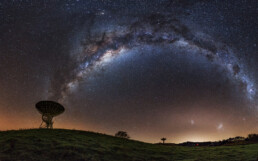Do Jinns possess humans?
This is a brief summary of what I believe to be the most compelling position on Jinn possession. I'd like to believe it has little to do with trying to appease any camp or cohort and simply the product of deliberating on various shar'i sources and scholarly reasonings, all for a significant period of time. All of the following points can be greatly expanded on, as well as many more being added, but for brevity I'll keep to what's here.
In further posts, I'll briefly breakdown some of the points I make here. There are things I believe the shaytan can do to humans (such as touch/المس) but I'll not go into them since I'm specifically concerned in these posts with possession and exorcism.
1. I strongly advocate that Jinns do NOT possess human beings. By possession I specifically mean a spirit entering a body to take control of it, where the soul loses cognitive and physical autonomy to an invading sentient being.
2. These are matters of the ghayb (unseen). So if we aren't informed about something then asserting it is highly questionable. The starting premise (asl) is that it's not the case unless we can evidence, via revelation, that it is.
3. There is nothing in the Qur'an that explicitly mentions possession whilst there are verses that explicitly suggest otherwise and lay it all out:
a) God tells us that "Satan will say, ‘God gave you a true promise. I too made promises but they were false ones: I had no power over you except to call you." (14:22) So the power of the devil is restricted to calling people to iniquity and misguidance.
b) This "call" occurs as whispers/الوسوسة and prompts/النزغ: "...the harm of the slinking whisperer who whispers into the hearts of people, whether they be jinn or people." (114:4-6) The power jinn have in this context is similar to those that humans have; it is whispers and the power of suggestion that God defines as the fitnah of shaytan (7:27), exemplified by the devil's whispers to Adam (20:120) and his wife (7:20).
c) The explicitly prescribed way to overcome this is through seeking refuge with God (الاستعاذة): "If Satan should prompt you to do something, seek refuge with God." (7:200, 41:36) "And say: Lord, I take refuge with You from the goadings of the evil ones." (23:97)
4. Everything else beyond these explicit verses is highly speculative and unconvincing since they seem inconsistent with what is explicit. Anything implicit ought to be understood in light of what is explicit, that's our interpretational framework. The few verses that have been drawn on by past scholars are subjected to far-fetched interpretations and weak reasoning, and the interpretive methods employed by some of them contradicted the principles of exegesis (usul al-tafsir) they advocated - all of which I'll explain later.
5. There is nothing decisively established from the Prophet on this (another reason why jinn possession is so speculative) - the ahadith that scholars draw on have very questionable asanid (chains of narrators) which they legitimise by citing other corroborating but questionable asanid (raising the ahadith to hasan li ghairihi - those scholars who see the problems surmountable in this way). As for the authentic hadith that scholars have cited, they have little to do with possession and mostly concern the 'touch' of the devil and its effects (which I affirm but will explain elsewhere). Just as with the Qur'anic verses, the authentic hadith are subjected to far-fetched interpretations and weak reasoning, especially in light of the decisive verses in the Qur'an.
6. During the prophetic era and closely after, jinn possession doesn't seem to have been a notable social phenomenon nor widely acknowledged or discussed, nor has exorcism for possession been explicitly recorded as either conducted by the Prophet or the companions in his midst. No sahabi is recorded as having been definitively taken over and possessed, nor were the Prophet and his companions recorded as having performed ruqyah for possession (I'll address the hadith of Uthman b. al-Aas later). It's simply absent from the general picture of early Islam and their engagement with the unseen, yet today you'd think we're under mass invasion!
7. People experience events/happenings. Their experiences are real and I don't deny them, but what they make of the event is a matter of perception and interpretation, which is subjective. Two variant witnesses might interpret the same event in very different ways. I believe ruqyah can work for the afflicted, mainly as a source of comfort and as a supplication to God to relieve the person's condition. But ruqyah to drive out an invading spirit that isn't actually there doesn't even make sense.
8. There are many issues with the position (which is why advocates tend to suspend reason on this topic, whilst inconsistently reasoning verses that seem problematic to their position). If reciting some verses (and a sprinkle of holy water/salt) ejects spirits, how is it that the many people purported to be possessed offer salah and attend Jumuah? If it's claimed that the sahabah were possessed, how so when the Prophet was consistently exhorting them with the Qur'an? If 'touch' is possession, was the Prophet Job possessed by the devil (see: 38:41)?! Even if we accept the interpretation of advocates, how is it that an alleged phenomenon so widespread and debilitating was never directly addressed by the Prophet, and no explicit guidance offered? Furthermore, in our context the main challenge to faith is atheism, so why would the devil and his minions possess people only to reveal the unseen to them and prove that religious claims are accurate - it doesn't seem like a solid strategy. And why is it that those who dismiss jinn possession (Muslims and non-Muslims alike) aren't ever possessed and seemingly immune, yet those who take it seriously are the ones under the constant threat of invasion?
9. In this context I believe most raqis are charlatans and fraudsters who've found a way to benefit from the vulnerabilities and desperation of others. I believe some are sincere but ignorant and believe in what they're doing, others acknowledge that they're simply offering comfort to the afflicted and a supplication. Over the years I've personally met all these types who've respectively confided in me.
10. I can't see any benefit to this belief (which is highly speculative to begin with). It does not increase godliness and instead causes people to obsess over supernatural spirits rather than focus on the Most High productively. It tends to promote a superstitious attitude and a preoccupation with the occult and supernatural, grant the jinn powers they don't have whilst confusing the servant as to the cause of his/her tests. Many have seen how it proves a distraction from, and a convenient onus for, a person's shortcomings. Overarchingly, it fosters a culture that demotes reason which then feeds into the general way we do faith. On the flipside, dismissing jinn possession means we seek constructive solutions rather than simply putting problems down to ghosts. It gives less succour to the devil, firstly by further undermining a culture of superstition, and secondly by rendering the devil irrelevant. In this vein the Prophet said: "Don't say: 'May Satan perish!' for if you do he swells up with pride until he is as big as a house and says: 'It is by my might!' Instead say: 'In the name of God' and if you say this he'll shrink until he is as small as a fly.” (Abu Dawud) Think about it, jinn possession offers the devil exactly what he loves, undue focus and attention, and for something the Qur'an tells us he can't even do! Dismissing this idea diminishes the devil as a distraction whilst also placing culpability back in our own laps. Most significantly, it removes a major distraction from our focus on God and subservience to Him where we develop ubudiyyah built on His supreme glory and majesty, and we attribute all power to Him alone in thankful worshipfulness - and not because we're just scared the spirits will get us. In this way, dismissing the idea that jinns possess humans is advantageous to glorifying God and engendering Abrahamic monotheism (hanifiyah) which is ultimately what God wants us to do.
Jinn possessions, exorcists, and all that jazz! Part 1
The Hasanat fiasco on social media has once again brought up, amongst other things, the topic of jinn possessions. I've been overwhelmed by those affected (either directly or indirectly) by this topic to provide some clarity - particularly those who (via my work) have positively changed their attitude towards the Qur'an and have begun to personally engage with God, thus heightening their godly intuitions and critical thinking.
Now an allegedly agnostic raqi has been charging people to perform exorcises he doesn't believe in, taking advantage of the beliefs (and vulnerabilities) of sincere Muslims. Of course, this phenomenon is widespread, but we tend to see it most commonly in matters related to the realm of the paranormal. What I'd like to do is open up these beliefs for critical contemplation. To be clear, I'm not into debating or discussing irrelevant issues or theological views that are of little consequence. (I leave my theoretical shar'i musings for people of shar'i learning, intellect and civility.) And before it's said that I'm merely trying to court controversy let's be real: it's only deemed controversial because some might not like it - not because it's true or false.
The topic of jinn possession is very important. For many ethno-religious communities in the UK, it's had massive social and religious ramifications, nearly all problematic. It's warped theology and focus, uncultivated God-centredness (theocentricity), and entrenched irrationality and superstitious attitudes, many of which often veer towards shirk, all of which lead to regression. I think that regardless of their position on the matter, most would be hard-pressed to argue otherwise. Even many raqis speak out against the prevalent culture and attitude.
Those around me have heard me discuss this topic for years, long before it became an internet 'controversy' - so I'd like to make clear that this is not reactionary. I've only not addressed this sooner because I didn't believe the context was appropriate. For a number of reasons, I believe it is now. This discussion fits into the greater project of godliness (rabbaniyyah), faith (imaan), Abrahamic monotheism (hanifiyyah), reason (aql) and revelation (wah'y). We all want to be proper worshippers of God and truly subservient. These posts are an exploration of how we might be so.
A few important points to note:
- The reality of jinn possession is a matter of ijhtihad. Believing that jinns possess human beings will neither get you into paradise nor keep you out of hell. Theologically, it's not that deep. And no, a position either way doesn't situate you in orthodoxy/heterodoxy. Inherently, it's not an inherent aspect of faith (imaan).
- The discussion is presented in posts, dealing with several key aspects to this topic. I keep it brief and somewhat reductive for social media. It's not a technical presentation (and shouldn't be). Furthermore they're posts and not responses to anyone specifically (lest someone thinks I'm responding to them as the posts progress). I've cut the discussion into pieces so that they're digestible. I'd like people not only to understand what I've written but also to take some time in contemplating the posts from various viewpoints, and I strongly believe that you'll all come to the same conclusions I have. BUT if not, I'm happy to live and let live.
- I'd like to keep things mature and intelligent, and engage in good faith (as always). The discussion here is with me - the arguments are mine. This discussion has been initiated by many people independently. Please leave those discussions with those advocates (whether it's for or against). What they've argued and how they've done so has little to do with me. As Moses said to God, "I have authority over no one except myself..." (Moses included his brother Aaron but that doesn't go for me!). Judge what I'm saying based on the merit of what I say, and to the extent it resonates with your intellect (as Imam al-Shafi'i put it).
- These posts are educational, not polemic. There's a time place for everything, and HERE the purpose will be to explain a position with some clarity so people can gain a clear picture, not debate it - that can be done elsewhere.If people want, they can access the arguments FOR jinn possession elsewhere - obviously there's another position. If you're staunchly against the position explained here, that's cool, do you. But no, you're not the last bastion of truth nor will subservience to God (islam) crumble because people dismiss possession by evil spirits.
May God aid us all to overcome the devil and become the best possible versions of ourselves.
The battle against folk religion and superstition.
Whenever I speak against superstitious beliefs that have crept into the Muslim imagination I’ve found that many are unable to distinguish between theism and superstition, assuming that believing in God and what He has revealed is similar to being superstitious. This is usually predicated on a number of things:
Claiming the “understanding of the salaf”
“Understanding of the salaf” (salaf here meaning early Islamic scholars) is possibly the most misrepresented claim of authority amongst Muslims today, deployed by various groups across the board and usually against one another, from the Deobandis, Salafis and Sufis, to the Shi’ah and even militant Muslim secularists. Just this fact alone tells you that the term is not only used ambiguously, but also rather subjectively.
But beyond this there’s a conceptual issue at hand that’s nearly always overlooked - they speak of an understanding of the salaf but rarely do they (both clerics and laymen) actually draw on the salaf’s actual understanding. Instead they simplistically adopt the context-specific conclusions of particular early Muslim scholars.
So there are two important points to explain here:
1. Early Islamic scholars reasoned phenomenally, nothing like the binary and uncouth articulations of many clerics today - and it’s as simple as picking up one of their books and reading it cover to cover to see this. They were highly intelligent and philosophical, and understood the sophisticated nature of operationalising revelation, identifying principles (أصول), operative factors (علل) and contextual variables (قرائن) that would lead them to specific conclusions for specific scenarios. They’d even discuss how these tools would determine their conclusions! But those today who claim to adhere to their “understanding” don’t actually seek to understand matters as they did, in an unschooled fashion they just look at what their concluded statements for an issue were, neglecting why they came to that conclusion for that scenario, what their methods of reasoning were, which operative factors they took into consideration and how they saw it as fitting into the bigger picture of the shariah, all of which serve to enlighten our approach to the issues of today.
“But Umar/Ibn Mas’ud/Abu Hanifah/Malik/Ahmad etc said…” is not a complete way of thinking, it’s severely lacking. The question that ought to arise is why they said what they did - what were they speaking to? A response is that “Yes, they said it about that, but THAT is not THIS!”
One point that certainly requires further contemplation is the problem with today's “traditional” Islamic studies: they offer a somewhat linear view of the history of fiqh or aqidah as a steady progress from the imams to contemporary manifestations of religious practice, passing over the many problems in transferring assumptions that were largely fashioned in the distant past and applying them today.
2. Early Islamic scholars differed on many issues, and studying those differences ought to be highly enlightening for a mufti - it’s a record of how the godly brought together reason and revelation to conclude what God might want from them.
Where they’d all agree on something, that’d simply be Ijma (juristic consensus) and invoking the “understanding of the salaf” in such cases would be pointless since juristic consensus is far more authoritative.
So when the clerics use the term “understanding of the salaf” they're not actually referring to a pervasive understanding back then, but an opinion of some scholars of the salaf, or one sahabi (prophetic companion), with other scholars seeing the respective issue differently. It’s a dishonest way of evoking the idea of widespread conformity amongst early Muslims in order to misleadingly establish a sectarian version of “orthodoxy”.
And which scholars of the salaf ought to be the focus for precedent differs amongst the groups - there were thousands of early scholars - one group will draw on a particular cohort from the salaf whilst the other has its own cohort. So in reality, whilst they all seem to be claiming the same thing it remains an appeal to authority that isn’t mutual.
[Of course, there are legitimate reasons for invoking the “understanding of the salaf”, an example of which is where a mufti is simply evidencing precedent for an opinion and staving off infantile or unschooled accusations of heresy or it’s like by showing that it was an established opinion of those whom the interlocutor may take as authorities.]
Where is God?
Being stuck in a rut is one of many expressions used by Muslims these days. Besides a generally negative outlook it ingrains an unproductive attitude that makes becoming unstuck increasingly difficult. Many put it down to the current political climate, and while the lens of securitisation has certainly generated unease around religious expression, to pile our woes at the feet of politicians might be offering them a bit too much.
In reality, there is a simple reason and remarkably one many fail to pinpoint (itself a symptom of the problem) and that is figuring out where exactly God fits into the equation. These days, nearly every discussion on Muslims or Islam has God missing from it. That’s not to say that our discussions do not insinuate something about God, but our inferences treat the divine as a presumed variable rather than the primary motive. Even where we articulate something being for God, actual engagement with such sentiment fails to extend beyond routine expressions. How often do we ask: “Well if this is for God, how do I know it’s what He wants, and in the way that He wants it?”
A closer inspection suggests that our association with God seems to be cosmetic, and when we get around to addressing that association it tends to be superficially in a communal setting. Collective religiosity is fine but it has to be complemented with an intimate and personal association,
Thoughts on refuting claimants to "traditionalism"
This post is a thread on the problematic ways in which we respond to religious refutations from so called traditionalists. Often it's pointless, and the 'traditionalism' many claim to espouse in our context is simply unschooled rhetoric coming from ethno-cultural anxieties.
- The way we construct responses often resorts to playing their game and inevitably fall into the quagmire we seek to free ourselves from. Our responses play the citation game rather than approach the topic from a perspective that explores the topic in a reasoned way. It plays up to the fallacious game and invites inanity.
- Such interlocutors neither debate nor explore, but present only that which is argumentative, concentrating on minutiae or picking apart an argument in a way that is irrelevant to the generality of the propositions presented. They resort to ad hominem and attacks which clearly exhibit their sectarian interests. They weaponise citations, imputing into past scholars their own sectarian intent.
- Their ‘brand’ of doing religion is the worst and most regressive: they butcher the efforts of the classical scholars, ignore what they were trying to do (or make up an alternative narrative) and consistently present us with a fiqh that leads nowhere or makes things worse, impedes the strengthening of the believers or the cause of God, and any other optimum outcome.
- It’s as if they are determined to hold the progressions of the believers back, often relying on explanations that mirror irrational Christian medieval doctrines that God has never advocated in the Qur’an. They are completely insular from wider society and even other Muslims, sitting in sectarian mosques, madrasahs and Islamic universities with absolutely no cognisance of what actually exists in societies around the world.
- The reality they relate to is some fairytale they have constructed in their minds, the complexities of modern post-industrial living is as alien to them as they are to us. In fact this is no religious battle but a cultural one, and their use of disparaging terms such as modernists etc isn’t really to do with one era or epoch against another (past vs present), but actually about regions - their problem tends to be that we’re not being Asian (or Eastern) enough either in our looks, practice or understanding.
- It’s a showcase of the worst of what knowledge can be used for; bickering, puerile name calling, and tearing down any attempt to actually operationalise what God has revealed. They want to force Muslims into disengaging with the world around them, often to legitimise their own disengagement which comes from their lack of understanding the shariah and consequent struggle to implement and apply revelation to today.
- It can be quite futile in engaging in a scholarly discussion because the mufti/maulana/shaikh (whatever mantle he claims to occupy) clearly does not know how to engage like one, nor do they seem to know what scholarship actually is. And our mere citing against their citations is not only pointless, its boring and circular, and a game we could play forever. This method to fiqh never resolves anything (I did it for years and learned my lesson) and only exists as a rhetorical tool for one-upmanship, something (may God guide us) we should have little interest in.
What's the water under God's throne?
“It is He who created the heavens and the earth in six periods, and His throne extends over the water, so as to test which of you does best…”
Qur'an 11:7
This post explores what God might mean by ‘waters’. As a caveat I’m not suggesting that what I’m about to present is a conclusive interpretation, it’s simply an exploration which is all we can really do with such verses, and I often enjoy intelligent godly theories presented by others. I don’t believe there’s a need to be conclusive with such reports (akhbar) - God did not provide us with the finer details precisely because He wants us to use our intellects and ponder the cosmos in a way that inspires deep reverence and awe, which is relative to the individual since the depth people require is personal.
What prompted these thoughts, as with all scholarly insights I suppose, were initial questions such as does 'water' here refer to the type on earth, like a lake or ocean floating about somewhere out there? Of course, put like this it sounds quite bizarre. One thing we tend to overlook when it comes to things beyond our immediate perceptions is that whilst God uses human representations for things out there (how else would humans understand what was being said?) it does not mean that their absolute reality is as humans understand the representations. Even in this verse, when God uses the term ‘throne’, no sensible person claims that God is sitting (as a human does) on a giant throne made of wood, metal or jewels which is simply floating about somewhere beyond the universe. It’d be somewhat anatopistic, that is, something out of its proper place. But then why would God choose the word throne (or ‘arsh in Arabic)? Well reasonably, because what God is literally talking about is best represented to the average human mind through a word she already recognises.
So hopefully having made that clear, what might the ‘water’ over which the throne sits be? A new experiment, the findings of which were published last week in Nature, confirms the existence of “superionic ice” with Quanta Magazine reporting that ‘Across the solar system, at least, more water probably exists as superionic ice — filling the interiors of Uranus and Neptune — than in any other phase, including the liquid form sloshing in oceans on Earth, Europa and Enceladus…All the previously known water ices are made of intact water molecules, each with one oxygen atom linked to two hydrogens. But superionic ice, the new measurements confirm, isn’t like that. It exists in a sort of surrealist limbo, part solid, part liquid. Individual water molecules break apart. The oxygen atoms form a cubic lattice, but the hydrogen atoms spill free, flowing like a liquid through the rigid cage of oxygens.’ However, ‘Depending on whom you ask, superionic ice is either another addition to water’s already cluttered array of avatars or something even stranger. Because its water molecules break apart, said the physicist Livia Bove of France’s National Center for Scientific Research and Pierre and Marie Curie University, it’s not quite a new phase of water. “It’s really a new state of matter,” she said, “which is rather spectacular.”’ To be clear, I’m not saying the water beneath the throne is superionic ice for sure but I’m exploring (as the sahabah and scholars after them would characteristically do) the idea that it could possibly be a type of superionic ice, but also quite plausibly, a completely new state of matter that we have yet to come across - or even conceive of.
Can we know more, and did the Prophet tell us anything? Well interestingly, al-Bukhari reports that the Prophet began to explain the affairs of the beginning of creation, but it was missed by Imran b. Husayn as he was called away! A delegation from Yemen came to see the Prophet saying, “We come offering peace to the messenger of God, to learn about the faith, and to ask how all of this began?” The Prophet began to explain, “God was present and there was nothing else (of the cosmos) besides Him, and the throne was above the water, and He wrote in the dhikr before everything occurred, then He created the seven heavens.” Imran b. Husayn was then called away to his camel which had run off and resultantly missed the rest of the explanation. He lamented afterwards, “I wish I had left the camel!”
We haven’t much related to us from the Prophet in regards to what the water is, and we don’t know whether he touched upon it whilst Imran b. Husayn was absent. However, it seems the conversation amongst the sahabah didn’t stop there. Sa’eed b. Jubayr relates that the prophetic companion Abdullah b. Abbas was asked in reference to this verse, “and what is the water on?” He replied, “a wind,” which if it was something he was relating from the Prophet (and not his own ijhtihad), might refer to a vast ocean of cosmic charged particles which sits under the ‘water’.
But what’s the purpose of all of this? Here we are called on to ponder the magnitude of God’s creation - we know how colossal the Pacific Ocean is, so imagine a superionic ice that extends for trillions (to the power of trillions, and far far more) lights years! To even begin to contemplate magnitude and reality here is mind-boggling, and it ought to bear on us the insignificance of man and his affairs, or the nature of the power he foolishly thinks he has. It induces a far deeper consideration of the oft-repeated phrase ‘God is great.’
In this way, the possible meaning of the continuing verse “so as to test which of you does best” is that God tells us of the throne and the waters “to try his servants to consider and deduce (values) such as His complete (divine) abilities and the resurrection of the soul” as al-Qurtubi suggests, and then to use the faculties of the intellect as Qatadah put it, to recognise God’s supreme majesty rather than ignoring what such knowledge suggests and living out a life devoid of God. al-Dah’hak opined that “does best” means offers the most appreciation,” ostensibly from considering and deducing such values. The use of the intellect and a show of appreciation to God are two fundamental principles that flow through the Book of God, and sit centrally in the meta-narrative that informs our existential purpose, something I hope to map out gradually for believers seeking a holistic understanding of their relationship and engagement with the Most High.
What's the water under God's throne?
“It is He who created the heavens and the earth in six periods, and His throne extends over the water, so as to test which of you does best…”
Qur'an 11:7
This post explores what God might mean by ‘waters’. As a caveat I’m not suggesting that what I’m about to present is a conclusive interpretation, it’s simply an exploration which is all we can really do with such verses, and I often enjoy intelligent godly theories presented by others. I don’t believe there’s a need to be conclusive with such reports (akhbar) - God did not provide us with the finer details precisely because He wants us to use our intellects and ponder the cosmos in a way that inspires deep reverence and awe, which is relative to the individual since the depth people require is personal.
What prompted these thoughts, as with all scholarly insights I suppose, were initial questions such as does 'water' here refer to the type on earth, like a lake or ocean floating about somewhere out there? Of course, put like this it sounds quite bizarre. One thing we tend to overlook when it comes to things beyond our immediate perceptions is that whilst God uses human representations for things out there (how else would humans understand what was being said?) it does not mean that their absolute reality is as humans understand the representations. Even in this verse, when God uses the term ‘throne’, no sensible person claims that God is sitting (as a human does) on a giant throne made of wood, metal or jewels which is simply floating about somewhere beyond the universe. It’d be somewhat anatopistic, that is, something out of its proper place. But then why would God choose the word throne (or ‘arsh in Arabic)? Well reasonably, because what God is literally talking about is best represented to the average human mind through a word she already recognises.
So hopefully having made that clear, what might the ‘water’ over which the throne sits be? A new experiment, the findings of which were published last week in Nature, confirms the existence of “superionic ice” with Quanta Magazine reporting that ‘Across the solar system, at least, more water probably exists as superionic ice — filling the interiors of Uranus and Neptune — than in any other phase, including the liquid form sloshing in oceans on Earth, Europa and Enceladus…All the previously known water ices are made of intact water molecules, each with one oxygen atom linked to two hydrogens. But superionic ice, the new measurements confirm, isn’t like that. It exists in a sort of surrealist limbo, part solid, part liquid. Individual water molecules break apart. The oxygen atoms form a cubic lattice, but the hydrogen atoms spill free, flowing like a liquid through the rigid cage of oxygens.’ However, ‘Depending on whom you ask, superionic ice is either another addition to water’s already cluttered array of avatars or something even stranger. Because its water molecules break apart, said the physicist Livia Bove of France’s National Center for Scientific Research and Pierre and Marie Curie University, it’s not quite a new phase of water. “It’s really a new state of matter,” she said, “which is rather spectacular.”’ To be clear, I’m not saying the water beneath the throne is superionic ice for sure but I’m exploring (as the sahabah and scholars after them would characteristically do) the idea that it could possibly be a type of superionic ice, but also quite plausibly, a completely new state of matter that we have yet to come across - or even conceive of.
Can we know more, and did the Prophet tell us anything? Well interestingly, al-Bukhari reports that the Prophet began to explain the affairs of the beginning of creation, but it was missed by Imran b. Husayn as he was called away! A delegation from Yemen came to see the Prophet saying, “We come offering peace to the messenger of God, to learn about the faith, and to ask how all of this began?” The Prophet began to explain, “God was present and there was nothing else (of the cosmos) besides Him, and the throne was above the water, and He wrote in the dhikr before everything occurred, then He created the seven heavens.” Imran b. Husayn was then called away to his camel which had run off and resultantly missed the rest of the explanation. He lamented afterwards, “I wish I had left the camel!”
We haven’t much related to us from the Prophet in regards to what the water is, and we don’t know whether he touched upon it whilst Imran b. Husayn was absent. However, it seems the conversation amongst the sahabah didn’t stop there. Sa’eed b. Jubayr relates that the prophetic companion Abdullah b. Abbas was asked in reference to this verse, “and what is the water on?” He replied, “a wind,” which if it was something he was relating from the Prophet (and not his own ijhtihad), might refer to a vast ocean of cosmic charged particles which sits under the ‘water’.
But what’s the purpose of all of this? Here we are called on to ponder the magnitude of God’s creation - we know how colossal the Pacific Ocean is, so imagine a superionic ice that extends for trillions (to the power of trillions, and far far more) lights years! To even begin to contemplate magnitude and reality here is mind-boggling, and it ought to bear on us the insignificance of man and his affairs, or the nature of the power he foolishly thinks he has. It induces a far deeper consideration of the oft-repeated phrase ‘God is great.’
In this way, the possible meaning of the continuing verse “so as to test which of you does best” is that God tells us of the throne and the waters “to try his servants to consider and deduce (values) such as His complete (divine) abilities and the resurrection of the soul” as al-Qurtubi suggests, and then to use the faculties of the intellect as Qatadah put it, to recognise God’s supreme majesty rather than ignoring what such knowledge suggests and living out a life devoid of God. al-Dah’hak opined that “does best” means offers the most appreciation,” ostensibly from considering and deducing such values. The use of the intellect and a show of appreciation to God are two fundamental principles that flow through the Book of God, and sit centrally in the meta-narrative that informs our existential purpose, something I hope to map out gradually for believers seeking a holistic understanding of their relationship and engagement with the Most High.
Event: Discussing belief in God - A leap of faith?
Join us for #QuranSessions seminar and discussion on what it means to believe and whether God demands a 'leap of faith':
- What is faith and what does it mean to believe?
- What is it that we've signed up to - is it simply theism?
- How does God demarcate between monotheism and superstitious beliefs?
- Is there a major significance in the way we believe, and is there diversity in belief that's acceptable to God?
Join Sh Mohammed Nizami for another thought-provoking #QuranSessions about belief and faith to explore fundamental questions that shape how God defines a believer.
Open to all. Break-fast meal provided.
When? Saturday 25th May 2019, 5:15pm - 9:15pm
Where? Hackney, E8 1FA
Supported by Coffee Afrique










